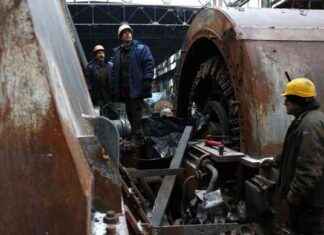After the 9-euro ticket was sold millions of times, the Hamburger Verkehrsverbund (HVV) is relying on new offers to bind more people to local public transport in the long term. “I hope that we will take the momentum with us and derive further attractive offers from the experience with the 9-euro ticket,” said the managing director of the association, Anna-Theresa Korbutt, on Monday in a first balance sheet from the federal government with 2, 5 billion euros nationwide financed special campaign. “These must be simple and uncomplicated, relieve people financially and at the same time significantly advance climate change.”
With new offers, which are initially not nearly as cheap as the 9-euro ticket, the HVV wants to continue to attract new customers to the bus and train from September. For example, there is a new 5-day pass that can be used flexibly within 30 days. There is also a “flex subscription” available until mid-September, which means that the time until October 1st is free. And subscription customers can use the entire HVV area almost the entire time in September, regardless of the area of validity of the card.
Transport companies, like the federal states, are demanding a successor regulation for the 9-euro ticket. Hamburg’s red-green Senate is therefore focusing on a nationwide solution in the discussion. From the point of view of the opposition in the Hamburg Parliament, the Senate is now also in demand. The success of the 9-euro ticket must be a “wake-up call” for the government of the city-state, said the transport policy spokesman for the CDU parliamentary group, Richard Seelmaecker. “We need an expansion and price offensive for public transport in our city.” His party has been calling for a 365-euro annual ticket in Hamburg for years.
The traffic policy spokeswoman for the left, Heike Sudmann, meanwhile demanded price reductions in the HVV. “The Senate can and must take this step independently of a federal decision on the successor to the 9-euro ticket.” “The meager follow-up offers from the HVV are not enough,” said Sudmann. Above all, the AfD criticized that commuters had to pay a high price for the attractiveness of the 9-euro ticket. “Tense crowds, hopelessly overcrowded and late trains were the norm. The current infrastructure is not prepared for these masses, ”said AfD parliamentary group leader Dirk Nockemann.
The special campaign should relieve commuters nationwide in view of high energy prices. In addition, it should advertise a switch to buses and trains. A total of around 3.5 million 9-euro tickets were sold in the Hamburger Verkehrsverbund (HVV). In each of the three months of June, July and August, in which the state-funded special campaign ran, more than a million customers bought the discounted ticket, as an HVV spokesman reported on Monday in Hamburg. In addition, 680,000 subscribers benefited, who also only had to pay 9 euros for their season ticket during the campaign.
The number of passengers in buses, trains and ferries in the HVV in the summer was back to the level of the pre-Corona year 2019 for the first time, and in June before the start of the holiday season it was even slightly higher, the transport association reported. The HVV attributes a large part to this upward trend to the 9-euro ticket. The HVV sales figures include all sales outlets that sell tickets in the network area, including Deutsche Bahn, which was not included in previous sales balances of the network.
According to regular surveys of users, more than half (54 percent) of the 9-euro ticket buyers have used their own car less often since the start of the special campaign. “Without the 9-euro ticket, 12.3 percent of the journeys would have been made by car rather than the HVV. This corresponds to a saving of six million relocated journeys per month of the campaign,” according to the transport association.
“The 9-euro ticket showed us that more and more people are willing to change their mobility behavior, to travel more by bus and train and to leave their car behind – if the offer and pricing are right,” said Korbutt. According to the surveys, the majority of ticket buyers are willing to pay more for the ticket. According to the HVV spokesman, it is still unclear whether the association can convert the 9-euro ticket into an increasing number of subscription customers.








